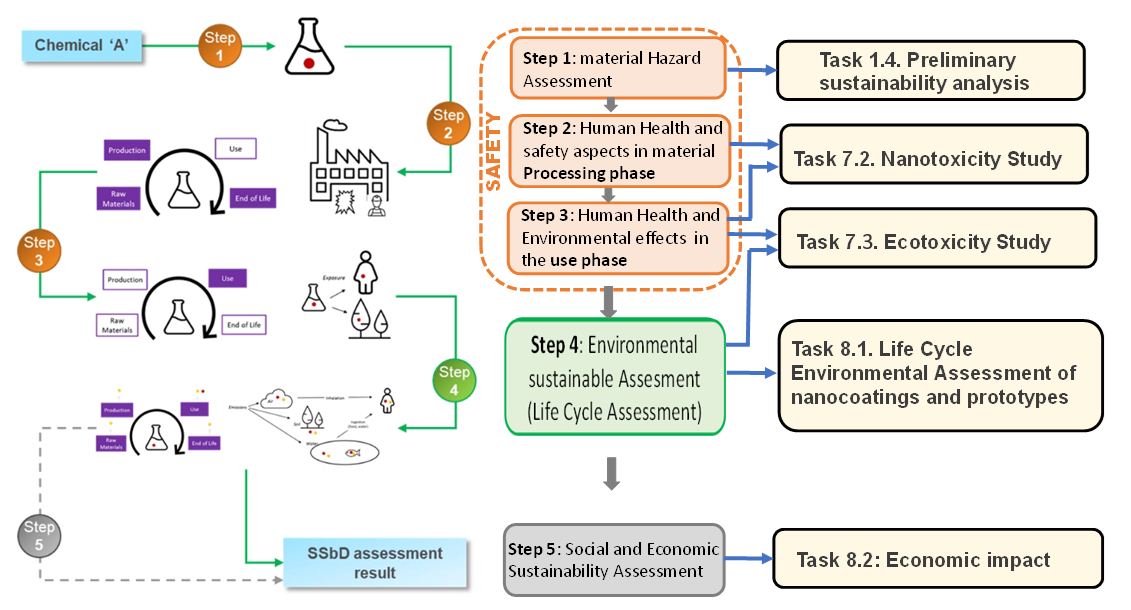
April 14, 2023
PRELIMINARY SUSTAINABILITY ANALYSIS REPORT
RELIANCE project aims to design and develop smart response self-disinfectant antimicrobial nanocoatings based on a new range of smart antimicrobial nanoparticles. They will consist of mesoporous silica nanoparticles with metallic copper in their structure, modified with biobased bioactive compounds.
To ensure that the antimicrobial nanocoatings developed within the RELIANCE project are sustainable for humans and the environment, to increase recycling and use of resources in a more efficient way, efforts are required from an early stage of design and manufacturing.
Fundamental to the whole effort is the topical concept of ‘Safe-and-Sustainable-by-Design‘, SSbD, which implies the design of safe chemicals and materials, minimising their emission into the environment and the use of natural resources, with the aim to reduce the negative impacts to human health and environment. It integrates circularity, climate neutrality, functionality and safety of materials, products and processes throughout the life cycle.
The European Commission has recently established a set of recommendations[1] that proposes a European framework for SSbD chemicals and materials be established for Research and Innovation activities. The EC Joint Research Center has proposed a first SSbD framework[2] that sets a common baseline for evaluating safety and sustainability – an important step to increase the protection of human health and the environment against hazardous substances. The Sustainability criteria should consider environmental, social, and economic dimensions while safety should be included in all of the dimensions.
On this framework developed by JRC for SSbD criteria implementation, a two-phase approach is recommended:
- first a design phase in which a number of guiding principles are proposed to support the design of chemicals and materials,
| SSbD1 | Material efficiency |
| SSbD2 | Minimize the use of hazardous chemicals/materials |
| SSbD3 | Design for energy efficiency |
| SSbD4 | Use renewable sources |
| SSbD5 | Prevent and avoid hazardous emissions |
| SSbD6 | Reduce exposure to hazardous substances |
| SSbD7 | Design for end of life |
| SSbD8 | Consider the whole Life Cycle |
- and then a stepwise hierarchical approach is proposed to address the comprehensive safety and sustainability assessment of the new designs by carrying out different analysis on chemical safety, direct toxicological or ecotoxicological impact, aspects of environmental sustainability as well as social and economic conditions.
RELIANCE is aligned with this SSbD philosophy and in the first steps of the project the SSbD guiding principles are being considered during the antimicrobial nanocoatings design phase. In this preliminary sustainability analysis special attention was paid to verify that the initial selection of materials will allow the environmental and societal acceptance of the final antimicrobial nanocoatings developed within the project.
As a second step within the RELIANCE project, a Safety and Sustainability assessment will be conducted as shown in Figure 1, from a Life Cycle Engineering perspective that sequentially applies safety (material hazard and human health), environmental, economic and social comprehensive studies:

Figure 1. Sustainability assessment by RELIANCE project (based on the JRC framework)
[1] Commission recommendation - establishing a European assessment framework for safe and sustainable by design.PDF (europa.eu)
[2] (2022, European Commission and JRC), Caldeira, C., Farcal, R., Garmendia Aguirre, I., Mancini, L., Tosches, D., Amelio, A., Rasmussen, K., Rauscher, H., Riego Sintes, J. and Sala, S., Safe and sustainable by design chemicals and materials - Framework for the definition of criteria and evaluation procedure for chemicals and materials, EUR 31100 EN, Publications Office of the European Union, Luxembourg, 2022, ISBN 978-92-76-53280-4, DOI 10.2760/487955 (online)
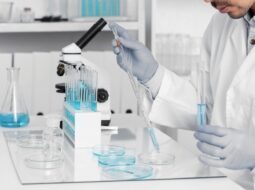
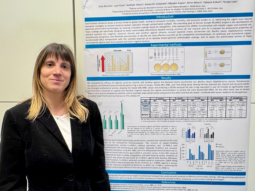
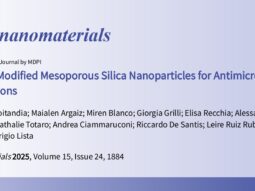

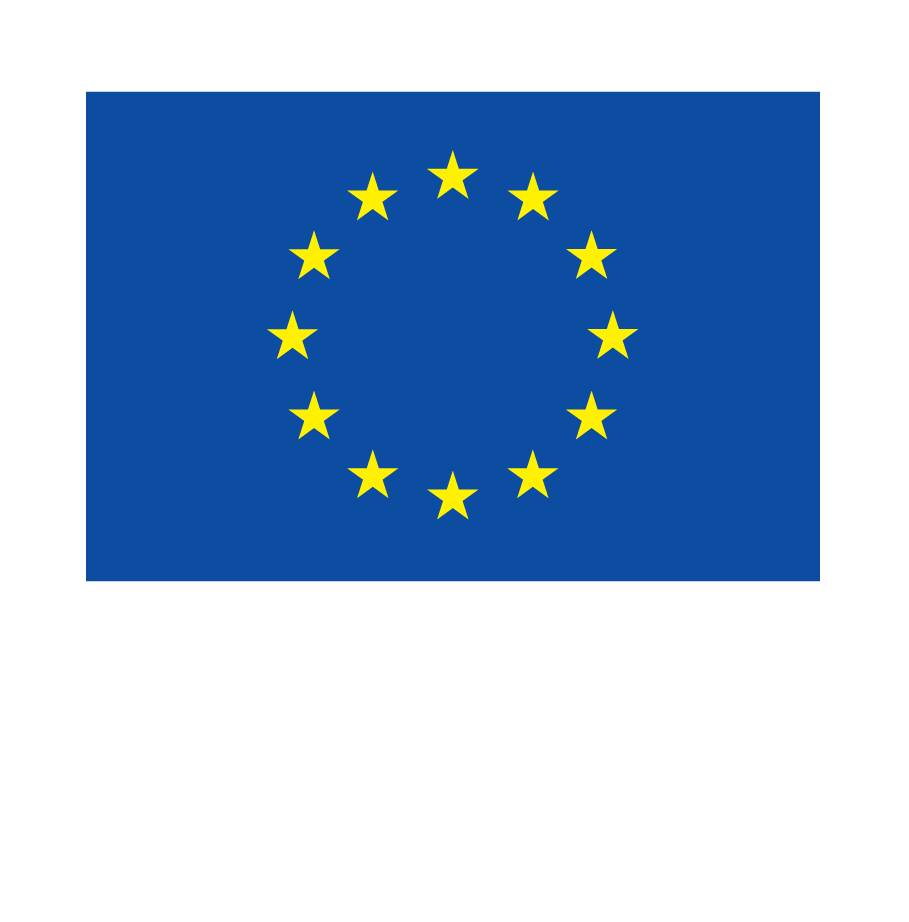
Views and opinions expressed are however those of the author(s) only and do not necessarily reflect those of the European Union or the European Health and Digital Executive Agency (HADEA). Neither the European Union nor the granting authority can be held responsible for them.
© All Rights Reserved 2025 | Reliance-HE
Designed and Developed by Europroject

